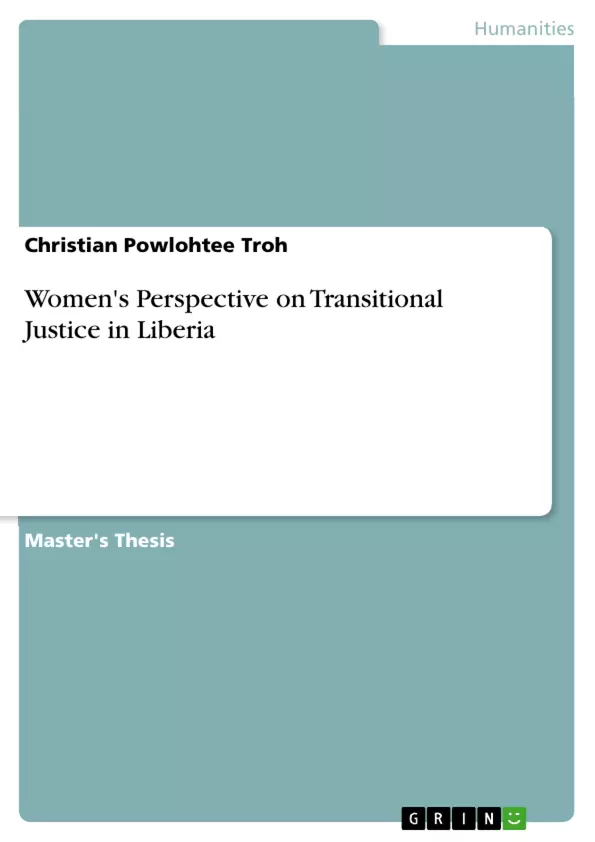The aim of this research is to understand the role and experience of women in the context of transitional justice and peace building in Liberia after the end of the civil war in 2003. The study focuses on women in Liberia’s capital Monrovia, who have been involved in various way in initiatives towards transitional justice and peacebuilding. Development of this understanding will help in improving the process of transitional justice and assist it in making it more robust and inclusive. The focus is on the time period after 2003, as this is when transitional justice measures were implemented.
The emancipation of women from the regions of war has been a subject of critical debate across all cultures and geographical settings, including Liberia. Hence, the concept of transitional justice for its application in Liberia needs to be analyzed in the context of the history of the country and how it has impacted the social demography of the region along with the role of women needs to be assessed. This research aimed to understand the experience of women being involved in transitional justice and peacebuilding in Liberia. A primary qualitative research approach was used for the same with foundations based on critical feminist theory. The participants were recruited through purposive sampling with collection of data using semi-structured interviews. The findings of the interviews conducted among the upper-middle-class women of Monrovia included the primary themes: the transitional justice movement has altered the role of women in Liberia, the emancipation of women is yet to reach the masses, and the movement of transitional justice needs to evolve further.
Inhaltsverzeichnis (Table of Contents)
- Chapter I: Introduction
- 1.1 Motivation to do this study
- 1.2 Research Aim
- 1.3 Research Questions
- Chapter II: Background
- 2.1 Women, war and transitional justice in Liberia
- 2.2 The transitional justice process and status of women in Liberia
- Chapter III: Theoretical approach
- 3.1 Application of critical feminist theory
- 3.2 Understanding transitional justice
- 3.3 Transnational justice and the role of women
- 3.4 Analytical framework
- Chapter IV: Research methodology
- 4.1 Research type and design
- 4.2 Data collection through interviews: Interview methods
- 4.3 Selection of research subjects
- 4.4 Ethics and positionality
- 4.4 Data analysis
- 4.5 Limitations of the study
- Chapter V: Results and discussion
- 5.1 Impact of war on women, and how women understand the changed role of women more broadly in the country
- 5.2 Women's experience of the transitional justice and peacebuilding process
- Quote paper
- Christian Powlohtee Troh (Author), 2022, Women's Perspective on Transitional Justice in Liberia, Munich, GRIN Verlag, https://www.grin.com/document/1442619



